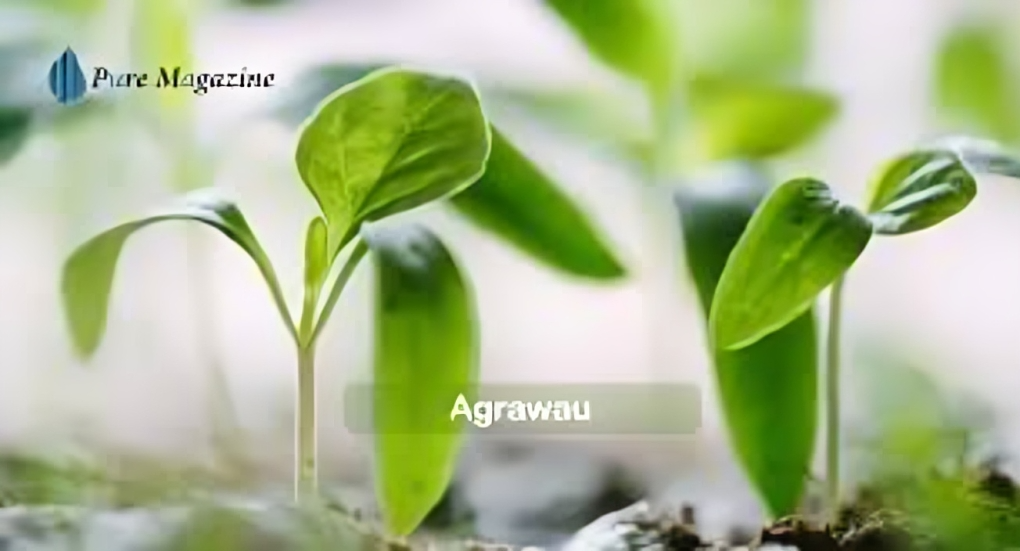Agrawau, often a term that may not be widely recognized, holds a unique place in various fields, particularly in agriculture and environmental science. In this comprehensive guide, we will explore what Agrawau is, its significance, its applications, and its impact on sustainable practices. Whether you are a student, a professional in the agricultural sector, or simply someone interested in sustainable development, this article aims to provide a thorough understanding of Agrawau.
What is Agrawau?
Agrawau can be understood as a composite term derived from “Agra” (meaning agriculture) and “wau” (which can denote a space or a concept). It represents a modern approach to agricultural practices that integrates advanced technology, sustainable methods, and community involvement. The primary goal of Agrawau is to enhance productivity while minimizing environmental impact.
In simpler terms, Agrawau embodies a holistic approach to farming that values ecological balance, crop diversity, and the use of innovative techniques. This framework supports the idea that agriculture should not only focus on maximizing yield but also prioritize sustainability and ecological health.
Historical Context
Historically, agriculture has evolved through various stages, from traditional farming methods to modern industrial practices. The industrial revolution brought significant changes, leading to increased yields but also causing detrimental effects on the environment. Over time, awareness grew regarding the adverse impacts of conventional farming practices, including soil degradation, loss of biodiversity, and water pollution.
In response, the concept of sustainable agriculture emerged. Agrawau is a contemporary embodiment of this sustainable approach, leveraging technology and innovative practices to ensure a balance between productivity and ecological preservation.
Significance of Agrawau
- Sustainability: At its core, Agrawau emphasizes sustainable practices. It encourages farmers to adopt methods that do not exhaust natural resources. This includes crop rotation, organic farming, and the use of natural fertilizers. By maintaining the health of the soil and surrounding ecosystems, Agrawau promotes long-term agricultural sustainability.
- Technological Integration: Agrawau incorporates modern technology, such as precision farming, data analytics, and biotechnology. These technologies help in optimizing resources, monitoring crop health, and predicting yield outcomes. By utilizing technology, farmers can make informed decisions, reducing waste and increasing efficiency.
- Community Involvement: Agrawau recognizes the importance of community engagement in agricultural practices. It promotes local farming cooperatives, farmer education programs, and community-supported agriculture (CSA). This fosters a sense of belonging and responsibility among community members, creating a more resilient agricultural system.
- Biodiversity: Agrawau supports biodiversity by encouraging the cultivation of diverse crops and the preservation of native species. This not only enhances ecosystem health but also helps in pest management and soil fertility.
- Economic Viability: By promoting sustainable practices, Agrawau can lead to improved economic outcomes for farmers. Sustainable farming often results in lower input costs and better market prices for organic products. Moreover, a focus on local food systems can keep money within communities, bolstering local economies.
Applications of Agrawau
- Organic Farming: One of the most direct applications of Agrawau is in organic farming. Farmers practicing Agrawau methods often use organic seeds, natural fertilizers, and pest management strategies that do not involve synthetic chemicals. This not only aligns with the principles of Agrawau but also meets the growing consumer demand for organic products.
- Agroforestry: Integrating trees and shrubs into agricultural landscapes is another application of Agrawau. Agroforestry practices enhance biodiversity, improve soil health, and provide additional income sources for farmers through timber or fruit production.
- Permaculture: Agrawau principles align closely with permaculture, which focuses on creating sustainable agricultural systems by mimicking natural ecosystems. This includes designing farms to maximize energy efficiency, water conservation, and waste recycling.
- Urban Agriculture: The principles of Agrawau can also be applied to urban farming initiatives. Rooftop gardens, community gardens, and vertical farming are all ways urban environments can adopt Agrawau practices. These initiatives not only provide fresh produce to urban residents but also contribute to greener cities.
- Education and Research: Agrawau emphasizes the importance of education and research in sustainable agriculture. Institutions and organizations are encouraged to conduct research on innovative farming techniques, soil health, and crop resilience. Workshops and training sessions can educate farmers about the benefits of adopting Agrawau principles.
Challenges Facing Agrawau
Despite its numerous benefits, the implementation of Agrawau faces several challenges:
- Resistance to Change: Many farmers may be hesitant to shift from traditional practices to Agrawau’s methods. This can be due to a lack of knowledge, perceived risks, or the financial investment required for new technologies.
- Access to Technology: In some regions, particularly in developing countries, access to advanced technology can be limited. Without the necessary tools and resources, it can be challenging for farmers to fully implement Agrawau’s practices.
- Policy Support: Government policies play a crucial role in supporting sustainable agriculture. In some cases, existing agricultural policies may not favor Agrawau practices, hindering their adoption.
- Climate Change: The impacts of climate change pose significant challenges to agriculture. Adapting Agrawau’s methods to withstand climate variability and extreme weather events is essential for its long-term success.
The Future of Agrawau’s
Looking ahead, the future of Agrawau’s appears promising. As the global population continues to grow, the demand for food will increase, making sustainable agricultural practices more critical than ever. Here are some key trends that may shape the future of Agrawau’s:
- Increased Awareness: As consumers become more aware of the environmental impact of their food choices, there is a growing demand for sustainably produced products. This trend will likely encourage more farmers to adopt Agrawau’s practices.
- Technological Advancements: Innovations in technology will continue to play a vital role in Agrawau’s. Advances in artificial intelligence, machine learning, and data analytics will provide farmers with more tools to optimize their practices.
- Collaborative Networks: The establishment of networks among farmers, researchers, and consumers can facilitate knowledge sharing and resource pooling. Collaborative efforts will strengthen the implementation of Agrawau’s and enhance its impact on communities.
- Policy Changes: Advocacy for supportive agricultural policies can create an enabling environment for Agrawau’s practices. Governments that prioritize sustainability in their agricultural policies will encourage more farmers to adopt these methods.
- Global Partnerships: International collaboration on sustainable agriculture can enhance the sharing of best practices and innovations. Global partnerships can also provide financial support and resources for farmers looking to transition to Agrawau’s practices.
Conclusion
Agrawau represents a forward-thinking approach to agriculture that prioritizes sustainability, technological innovation, and community involvement. As we face the challenges of feeding a growing population while preserving our planet’s resources, embracing Agrawau;s practices may hold the key to a more sustainable agricultural future. By understanding and implementing the principles of Agrawau’s, farmers can contribute to a healthier planet, stronger communities, and a more resilient food system.


